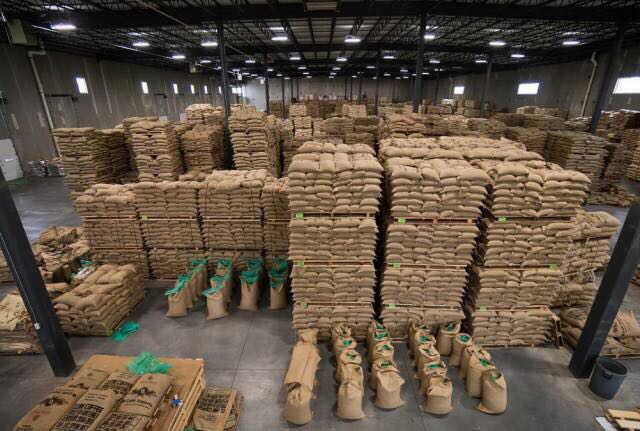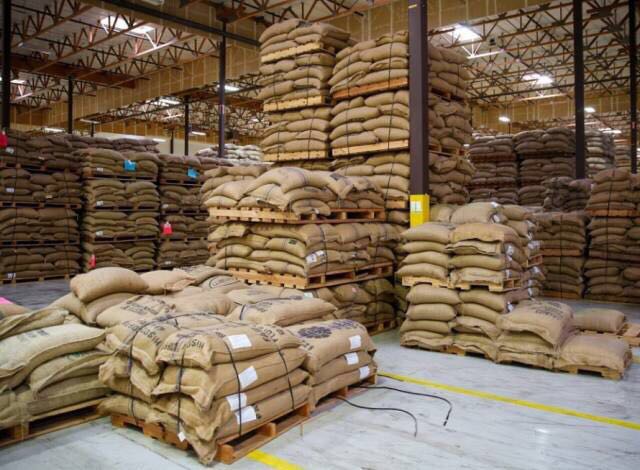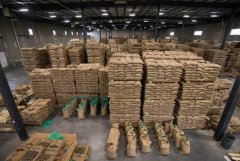How much is the export standard of coffee and raw bean traders, Ethiopia, Brazil, Honduras, Kenya and Indonesia?
For professional baristas, please follow the coffee workshop (Wechat official account cafe_style)
Generally speaking, Central America is 69kg, Colombia and Bolivia 70kg, and the rest of the world is 60kg. Industry standards are a wonderful thing. In fact, by looking at the uneven standards of various countries, we can see that the coffee industry has not yet reached a sufficiently mature stage in the process of global trade. There is no uniform standard not only for the weight of sacks, but also for the grade and quality of raw beans that consumers care most about. If you have to ask why some countries are AA. , some countries are SHB\ HB... , and some are SHG\ HG. And some are G1 / G2 / G3. Then why are the same G2 defects completely different from the parameters of bean size?
This is the status quo of an industry that is not standardized and unified for the time being. Just like some countries are on the left, some are on the right, some are 240v and some are 110v. It doesn't make any sense. It is very likely that in the future, relevant international organizations or relevant major producing countries will reach a consensus and jointly introduce some standards. However, there is a long way to go in the interests of countries themselves and traders and growers. Consumer countries still seem to be trying to adapt to so many standards.

But in fact, the immature consumer market does not care so much at all, such as China at this stage. Most of the standards are actually around 60-70kg, some boutique or small batches of raw coffee beans will also have 30kg or barreled, vacuum packaging, Grain Pro inner bags and so on. At present, the more general "sack" packaging has been popular for nearly two centuries, and it was first used by several of Brazil's largest traders, because of the characteristics of sacks (cheap, breathable, easy to transport, lightweight, with a certain degree of isolation). So it began to become popular all over the world.
Beside the point, many Chinese manufacturers have a keen sense of smell and have begun to manufacture and export such sacks in large quantities.
Another important reason why they are generally at 60-70kg is that workers are needed to carry and transport raw beans at the earliest after bagging, while the approximate weight that a middle-aged labor force can carry at one time is about 60-70kg, so sacks are about this size. Just like the original track was the width of a horse's ass. Now, due to the progress of technology and the increasing requirements of consumers, and for the demand of quality control in transportation and warehousing, more and more manufacturers and traders begin to try new packaging methods such as Grain Pro inner bag or plastic inner bag or vacuum packaging. The new plastic bags can better isolate the humidity and air, and reduce the various factors affecting the raw coffee beans. It is said that the bulky sack will retire from the stage of history, but how does it end?
Give you a national standard for gunny bags for reference:
Bolivia-70 kg
Colombia-70 kg
Costa Rica-69kg
Cuba-60 kg
El Salvador-69
Kg Guatemala-69 kg
Honduras-69kg
Mexico-69kg
Nicaragua-69kg
Peru-69kg
Brazil-60 kg
Burundi-60 kg
China-60kg
Dominican Republic-60 kg
Ethiopia-60 kg
India-60 kg
India Monsooned Malabar-50kg
Indonesia-60 kg
Kenya-60 kg
Malawi-60 kg
Nepal-60 kg
Panama-60 kg
Papua New Guinea (PNG)-60 kg
Rwanda-60 kg
Tanzania-60kg
Uganda-60 kg Vietnam-60 kg

Important Notice :
前街咖啡 FrontStreet Coffee has moved to new addredd:
FrontStreet Coffee Address: 315,Donghua East Road,GuangZhou
Tel:020 38364473
- Prev

Coffee raw beans wholesale and export, Central America is 69kg, Colombia and Bolivia 70kg?
Generally speaking, Central America is 69kg, Colombia and Bolivia 70kg, and the rest of the world is 60kg. Industry standards are a wonderful thing. In fact, by looking at the uneven standards of various countries, we can see that the coffee industry has not yet reached a sufficiently mature stage in the process of global trade. Not only does there not have a global standard for the weight of gunny bags, but even the consumer side is the most
- Next

Standard for export of raw coffee beans Indonesia Panama Papua Rwanda Tanzania Uganda
Professional barista exchanges please follow the coffee workshop (Wechat official account cafe_style) generally speaking, Central America is 69kg, Colombia and Bolivia 70kg, the rest of the world is 60kg. Industry standards are a wonderful thing. In fact, if you look at the uneven standards of various countries, you can know that the coffee industry has not yet developed into a mature enough in the process of global trade.
Related
- Detailed explanation of Jadeite planting Land in Panamanian Jadeite Manor introduction to the grading system of Jadeite competitive bidding, Red bid, Green bid and Rose Summer
- Story of Coffee planting in Brenka region of Costa Rica Stonehenge Manor anaerobic heavy honey treatment of flavor mouth
- What's on the barrel of Blue Mountain Coffee beans?
- Can American coffee also pull flowers? How to use hot American style to pull out a good-looking pattern?
- Can you make a cold extract with coffee beans? What is the right proportion for cold-extracted coffee formula?
- Indonesian PWN Gold Mandrine Coffee Origin Features Flavor How to Chong? Mandolin coffee is American.
- A brief introduction to the flavor characteristics of Brazilian yellow bourbon coffee beans
- What is the effect of different water quality on the flavor of cold-extracted coffee? What kind of water is best for brewing coffee?
- Why do you think of Rose Summer whenever you mention Panamanian coffee?
- Introduction to the characteristics of authentic blue mountain coffee bean producing areas? What is the CIB Coffee Authority in Jamaica?

